The Path to Become an American
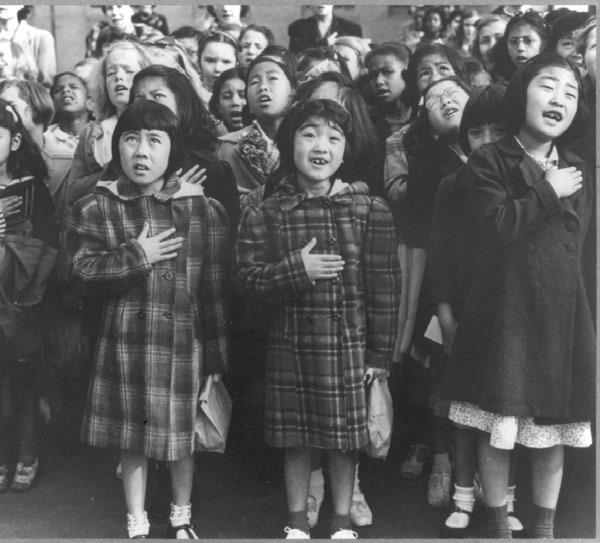
Yet people not born in the United States can still obtain citizenship. It is, however, a more complicated process.
It's Automatic
A child born outside the United States still is considered a citizen if at the time of birth:
Both parents are U.S. citizens and at least one parent lived in the United States before the child's birth. For example, if a child was born in Argentina, but both parents were U.S. citizens when he was born and his mother lived in the United States before his birth, then the child is a U.S. citizen.
Only one parent is a U.S. citizen and that parent lived in this country for at least five years before the child's birth, two of which were after age 14. So, if a child's father was the only parent with U.S. citizenship and he had lived in the United States the required amount of time before the child's birth, the child would be a U.S. citizen.
The Green Light
Someone born outside the United States (or outside a U.S. territory such as Guam or Puerto Rico) whose parents are not U.S. citizens must become a legal permanent resident before applying for citizenship. This is often called having a "green card." The most common ways to get legal permanent residency are:
✔ A close relative (parent, adult child, spouse, or sibling) who is a U.S. citizen or permanent resident applies for, or sponsors, the person.
✔ An American employer applies for the person because the person has the skills and education for a job that the employer wants to fill but for which he or she cannot find any Americans able and available.
Diese Geschichte stammt aus der May/June 2023-Ausgabe von Cobblestone American History Magazine for Kids.
Starten Sie Ihre 7-tägige kostenlose Testversion von Magzter GOLD, um auf Tausende kuratierte Premium-Storys sowie über 9.500 Zeitschriften und Zeitungen zuzugreifen.
Bereits Abonnent ? Anmelden
Diese Geschichte stammt aus der May/June 2023-Ausgabe von Cobblestone American History Magazine for Kids.
Starten Sie Ihre 7-tägige kostenlose Testversion von Magzter GOLD, um auf Tausende kuratierte Premium-Storys sowie über 9.500 Zeitschriften und Zeitungen zuzugreifen.
Bereits Abonnent? Anmelden
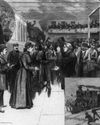
nellie Bly Journalist
nellie Bly's first newspaper articles appeared in print when she was just 20 years old.

Arabella Mansfield -Lawyer
Arabella Mansfield started out life as Belle Babb (1846-1911). She grew up in a Midwest family that valued education. In 1850, her father left to search for gold in California. He died in a tunnel accident a few years later.

Sarah Josepha Hale Editor
Long before Vogue or Glamour caught women's attention, Godey's Lady's Book introduced the latest fashions.

Louise Blanchard Bethune - Architect
Louise Blanchard Bethune (1856-1915) showed early promise in math. Lucky for her, her father was the principal and a mathematics teacher in a school in Waterloo, New York. Instead of going to school, Louise's father taught her at home until she was 11 years old. She also discovered a skill for planning houses. It developed into a lifelong interest in architecture and a place in history as the first professional female architect in the United States.
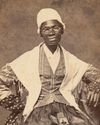
Sojourner Truth Speaker
There was a time when slavery wastes abolished the institution over a number of decades. New York abolished slavery in 1827. Isabella Baumfree (c. 1797-1883) was born enslaved in Hurley, New York. When she was nine, she was taken from her parents and sold. She then was sold several more times. Some of her owners were cruel and abused her. During that time, she had several children.

Getting Started
In this editorial cartoon, a young 19th-century woman must overcome the obstacle of carrying a heavy burden while climbing a multirung ladder before she can achieve \"Equal Suffrage.\"
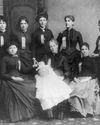
Leonora M. Barry - Investigator
When Leonora M. Barry (1849-1923) was a young girl, her family left Ireland to escape a famine. They settled in New York. Barry became a teacher. In 1872, she married a fellow Irish immigrant. At that time, married women were not allowed to work. So, Barry stayed home to raise their three children.

Finding a New Path
For many Americans, this month's mystery hero represents the ultimate modern trailblazer. She is recognized by just her first name.

The Grimké Sisters Abolitionists
Every night, Dinah was supposed to brush the E hair of her mistress, Sarah Moore Grimké (1792-1873). But one night, 12-year-old Sarah stopped Dinah. She wanted to help Dinah instead. They had to be quiet so they wouldn't get caught. It was 1804 in Charleston, South Carolina. The Grimkés were among Charleston's major slaveholding families. Strict laws regulated the behavior of both master and enslaved people.
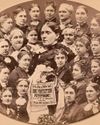
Frances Willard Leader
During Frances Willard's lifetime (1839-1898), she was the best-known woman in America: She headed the largest women's organization in the worldthe Woman's Christian Temperance Union (WCTU). In that role, her abilities shone as a social activist, a dynamic speaker, and a brilliant organizer. She educated women on how to run meetings, write petitions, give speeches, and lobby state and federal legislators.
